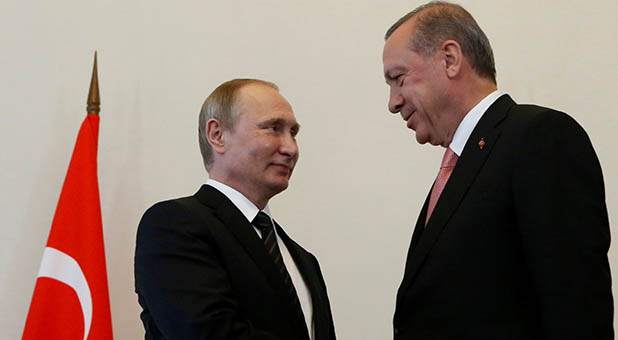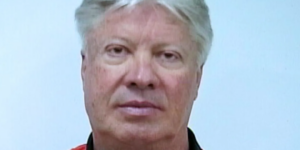Turkey and NATO Need to Go Their Separate Ways
Turkey’s brief democratic moment is ending. The rise of Recep Tayyip Erdogan and the Development and Justice Party (AKP) in 2002 signaled the collapse of the militarized secular republic created by Mustafa Kemal Ataturk. The recent failed coup effectively killed the semi-liberal democracy that briefly replaced Kemalism.
NATO is an anachronism and Ankara’s membership even more so. The Cold War’s premier military alliance led by the U.S. should have disappeared after the Soviet Union dissolved.
Today Turkey undermines U.S. and European security. As Ankara moves toward an authoritarian one-party state, its membership in NATO becomes ever more incongruous. A civil divorce would be best for all parties.
Erdogan began as the reformer Turkey had spent decades waiting for. He was supported by liberals hoping for a more democratic and open society. Europeans saw Erdogan as the man to take Turkey into the European Union.
And he delivered, at least until the AKP won its third consecutive election in 2010. Then he began moving in an unmistakably authoritarian direction.
Corruption spread, but police and prosecutors who asked too many questions were replaced. Military officers and others were convicted of fantastic charges based on fabricated evidence. Journalism became a risky profession, with entire media companies seized by his government. Thousands criticizing the president were prosecuted.
Erdogan also abandoned the ceasefire he had negotiated with the Kurdistan Workers’ Party, winning votes from nationalists. Ankara also attempted to drag the U.S. into the conflict against the Assad government while accommodating the Islamic State as it conquered territory and terrorized captive residents. Last fall his government threatened to spread the conflict by shooting down a Russian aircraft for briefly violating Turkish airspace.
Erdogan redoubled domestic repression after the failed putsch. The government had good cause to target anyone promoting a military repeat, but treated the coup as the equivalent of the Reichstag fire for the Nazis, an excuse to launch a country-wide crackdown.
The Great Purge obviously was prepared well in advance. The regime made the unsupported claim that the cleric Fethullah Gulen, a former Erdogan ally, plotted the coup, and arrested, fired or suspended tens of thousands of state officials and private employees. The regime also seized or closed foundations, schools, labor groups, universities, newspapers and online publications.
The Erdogan government appeared determined to eliminate any opposition to its increasingly authoritarian rule. Officials say they might create committees to assess the guilt of tens of thousands of people accused of disloyalty. Violence could become the only way to oppose Erdogan and the AKP.
As Turkey descends more deeply into repression and conflict, its value to NATO decreases. Ankara’s 1952 membership is a Cold War artifact. The Soviet Union no longer exists and there is no evidence that Moscow plans to stage a blitzkrieg through the Balkans, let alone to the Atlantic Ocean.
Russia’s brutal treatment of Georgia and Ukraine is essentially defensive against an expanding NATO, not offensive in attempting to recreate the Soviet empire. There is no renewed Russian threat for Turkey to combat.
Turkey’s primary military benefit to Washington is access to Incirlik airbase, which is not in fact contingent on Ankara being part of NATO. Moreover, the Erdogan government’s cooperation is not guaranteed even today.
Turkey probably would not even qualify for alliance membership today. It is engulfed in multiple conflicts largely of its own making. The extraordinarily brutal military campaign in the 1980s and 1990s against the large Kurdish minority could have induced Western intervention had the culprit not been a member of NATO. Now the conflict burns anew.
Moreover, early in the civil war the Erdogan government backed the ouster of Syrian President Bashar al-Assad and attempted to drag the U.S. into the horrid imbroglio. The Turkish government also aided the rise of the Islamic State by turning a blind eye to the latter’s cross-border activities, a decision which backfired badly when the group launched terrorist attacks.
At the same time, Turkey no longer meets the democracy and human rights standards for new members. In fact, Secretary of State John Kerry warned Ankara against moving away from the alliance’s “requirement with respect to democracy” in the aftermath of the coup.
NATO was willing to overlook such blemishes in the past, but today’s descent to authoritarianism is much harder to accept. In fact, the regime is distancing itself from the West, with some officials even blaming Washington for the coup.
The collapse of Turkish democracy is a tragedy for Turkey’s citizens and a problem for other nations. Turkey’s voluntary departure from NATO would best serve America’s and Europe’s interests.
Doug Bandow is a senior fellow with the Cato Institute.






































